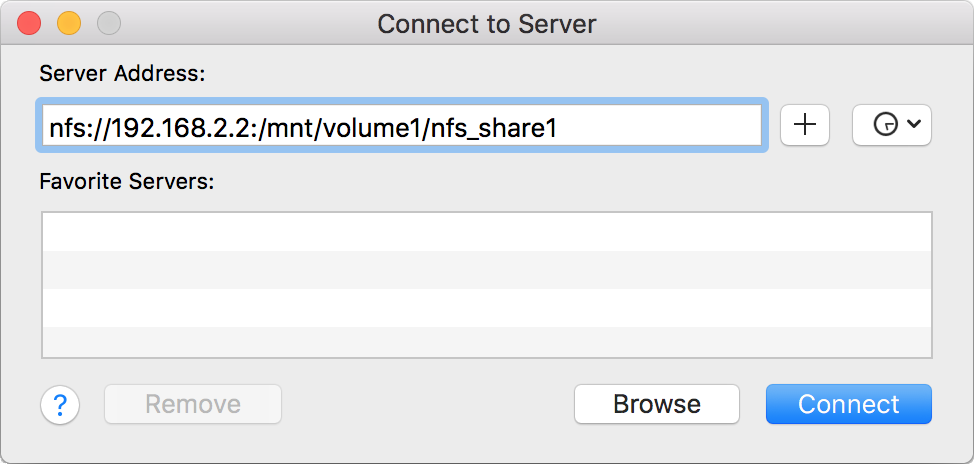

The all_squash, anonuid and anongid parameters force all NFS file and directory access in the export directory to effectively be from nfsnobody, regardless of the actual user on the Mac OS X client.Because the Mac OS X client uses a port number greater than 1023, the server requires the insecure keyword in the /etc/exports file Storage/Pools/Edit Permissions - ACL Type - Unix, User and Group - Nobody, and all the check boxes are checked -> Apply perm recursively. The NFS server uses the source network port number from the client for security. These are the settings: Storage/Pools/Edit Dataset - Share type - Unix.Restart/reload the NFS server (e.g., service nfs reload.) Notes This is required because the rest of the parameters on the line allow unfettered access to the nominated directory, and we only want this for this one Mac OS X client, not for all machines which happen to be able to connect. is the DNS name or IP address of the Mac OS X client. Dealing with Help desk tickets, one to ones with 1st line, stack management, resolving hardware & software issues, maintaining server system, Project planning and management, Building and Deploying computers from laptops and PCs.

Replace /share in the example above with the actual directory you want to use. In /etc/exports, add the line/share (rw,all_squash,insecure,anonuid=65534,anongid=65534) These will be the user and group owners of all files and directories created via NFS from the client.Īs root, create a directory which will be used as the export point, such as /share On the CentOS box used for testing, there was was already in existence a user and a group with the name "nfsnobody" (with uid and gid of 65534). Where is the name or IP address of the NFS server,Īnd is an export point listed in the NFS server's /etc/exports file (see below). It has built-in support for Spotlight search, Time Machine, Mac Aliases and Bonjour Services, which other protocols are not compatible with.


 0 kommentar(er)
0 kommentar(er)
